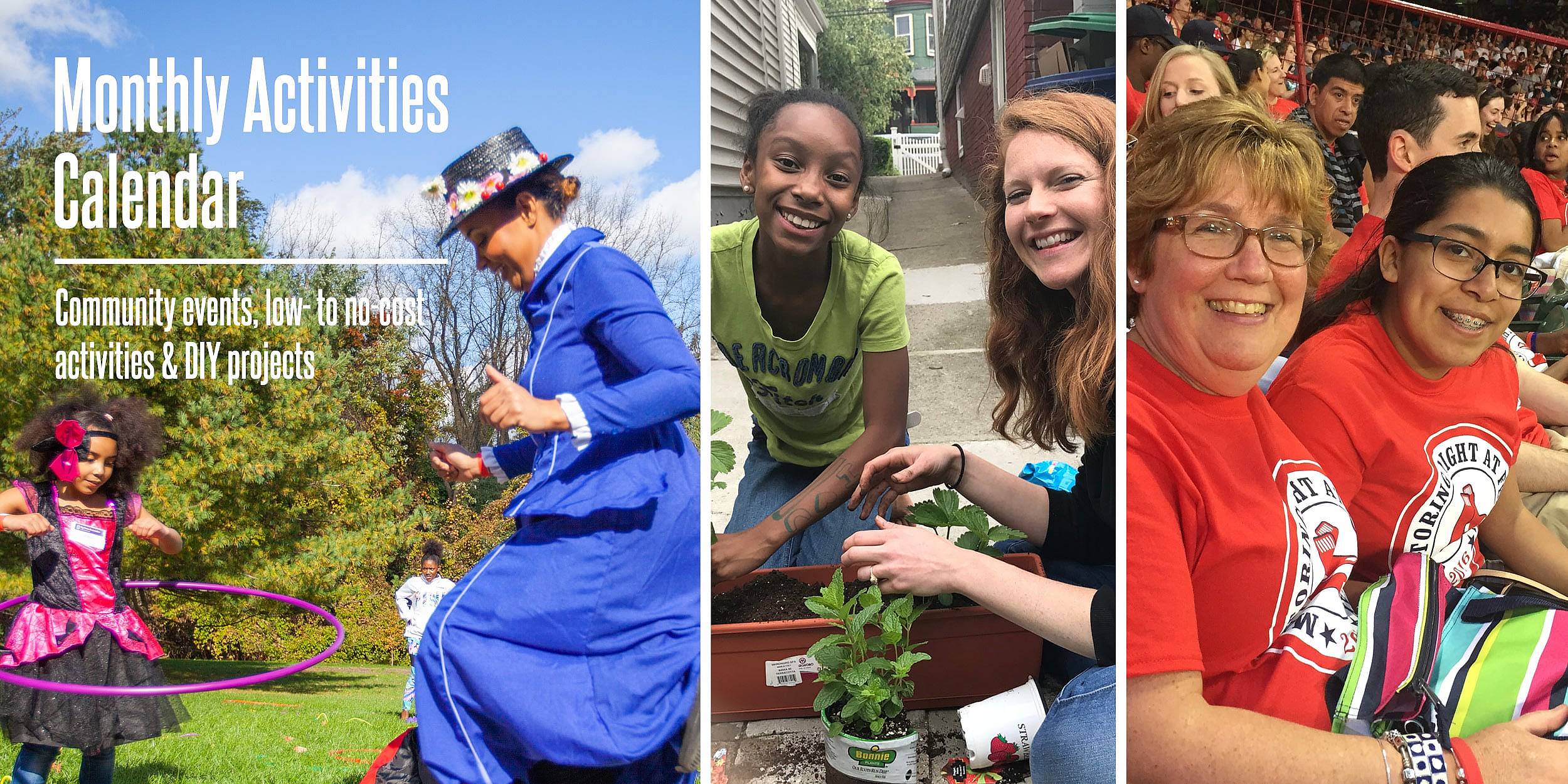Resources for Big sisters
Benefits for Big Sisters:
-
Free Events – Thanks to our generous donors, Sisters often receive free tickets to sporting events, theater productions, music concerts, and more!
-
Discounted Membership to Healthworks Fitness Centers for Women – Zero enrollment fee and receive $10.00 off your monthly dues, plus a complimentary one week guest pass and 30 minute session with a personal trainer.
-
Discounted Membership to Zipcar – Receive a membership for $25.00 per year, a total savings of $150.00.
- Generous Ticket Discounts – You will receive priority opportunities to purchase discounted tickets to such events as: Celebrity Series of Boston, women’s leadership conferences throughout Greater Boston, Big Sister Boston’s young professional events, and Boston Symphony Orchestra tickets to Tanglewood.
-
Employer Matching Contribution Gifts – Your employer may promote community service by providing a cash donation for each hour or day you volunteer. Big Sister staff can assist you in providing the necessary documentation to your employer in order to receive this benefit that helps sustain our organization
-
Personal and Professional Development – As a Big Sister you will have access to our robust network of corporate and community partners. Hone your fundraising skills and expand your network as a member of our Diversity Board. Find a seasoned mentor who will help you achieve your personal or professional goals through our New Girls Network (ask your Match Support Specialist for details)
Activity Calendars

We have several fun activities taking place in each! Make sure to check each event website directly for the most up-to-date times and locations. If you have questions or need additional activity ideas, please connect with your Match Support Specialist and they will be able to assist you. Follow our Facebook page for news, other activity ideas and ticket opportunities.
Big Sister Starter Kit
We created a Big Sister Starter Kit just for you. Once you review the Big Sister Starter Kit, you will have at your fingertips:
- Tips and games to help break-the-ice and get to know each other
- Indoor activity ideas including arts and crafts, local museums and cultural institutions
- Places to explore outdoors throughout Greater Boston
- Fun ways to end your weekly visits
- Helpful information about child development, organized by age
Your Match Support Specialist will review this guide at your first “match meeting.” If you have specific questions, reach out to your Match Support Specialist.
Racial Sensitivity Guide & LGBTQ+ Resource Guide
Our Match Support Specialists have worked hard to put together resources to provide additional support to our Big Sisters. Whether continuing your learning journey or navigating complex conversations with your Little Sisters, we hope the Racial Sensitivity Guide and LGBTQ+ Resource Guide are tools that can aid you in that journey. Please stay tuned as we work on expanding our toolkit of resources.
Click here to view our Racial Sensitivity Guide
Click here to view our LGBTQ+ Resource Guide
Mentoring Research
Experts in the fields of mentoring and research and design have conducted numerous studies on whether mentoring makes a difference. Big Sister Boston and our community have been active, willing participants in several such studies. Below is a collection of reports that provide insight into the research behind our approach.
- “Breaking Up Is Hard To Do: A Qualitative Interview Study of How and Why Youth Mentoring Relationships End.” Renée Spencer, Antoinette Basualdo-Delmonico, Jill Walsh, and Alison L. Drew. This research utilized qualitative interview data collected from participants in a longitudinal study of community-based mentoring relationships to examine how and why the relationships ended and how participants experienced these endings.
“It can be difficult to say goodbye—especially when the end of the relationship feels like a loss or failure in some way to the participants. This study indicates that good closures to youth mentoring relationships require considerable scaffolding on the part of mentoring programs as well as follow through by all participants.”
- The Role of Gender in Mentoring: A Three-Part Study by Dr. Jean Rhodes and Dr. Leon Litchfield’s. This research offers a quantitative study of how gender affects mentoring relationships.
“Since the youths’ satisfaction and perceived helpfulness of mentors increased over time, mentors should be supported in developing their mentoring relationships, and instructed that it may take time for their mentees, especially girls, to trust them, accept their support, and enjoy their time together.”
- “She Gives Me a Break From the World: Formal Youth Mentoring Relationships Between Adolescent Girls and Adult Women” by Dr. Renee Spencer and Dr. Belle Liang
“For many of the girls in this study, opportunities to immerse themselves in the pleasure of fun moments, shared with an adult companion who was interested in and cared about them, were experiences that seemed to be emotionally enhancing in and of themselves.”
- A study regarding positive outcomes for both mentors and mentees in Group Mentoring programs, including a look at how the mentoring experience improved employee attitudes toward work
“…the majority of youth in this study report that meeting with their mentors and involvement in the mentoring programs have had positive impacts in terms of improving school-related behavior, increasing youth development, and reducing negative or high-risk behaviors.”
- An analysis of the positive impact Site-Based Mentoring has on student attitudes, performance, and behaviors
“By the end of the first school year, the program had improved Littles’ outcomes in a range of areas, including their academic attitudes, performance and behaviors.”


